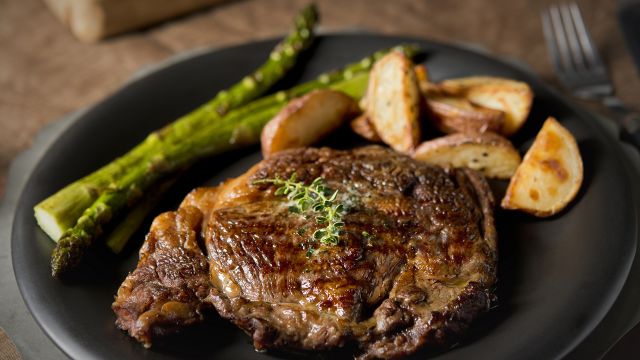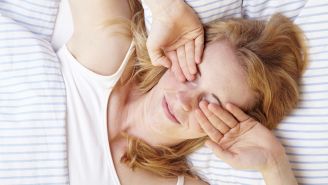At some point or another, it happens to everyone: You can't sleep. When you finally drop off, the alarm buzzes a microsecond later. Then, you can't get up. And then, it gets worse: When you finally drag yourself out of bed, you look like you-know-what.
Can't imagine why the sleep gods had it in for you? Think about what you ate the night before, says Elizabeth Somer, RD, author of The Food & Mood Cookbook. Any of the following—much less a combo platter—can leave your body on uneasy street for hours:
- Spicy foods: Garlic, chilies, cayenne, and other intense spices are yummy going down, but they can keep you up with heartburn or indigestion. Avoid MSG, too, as it can trigger dreams that are a bit too vivid.
- A big dinner: An overtaxed digestive system takes hours to settle down, and there's nothing restful about that. When sleep's critical, make lunch your largest meal, and enjoy a light 500-calorie dinner early in the evening.
- Raucous veggies: Eat those good-for-you-but-gassy foods—beans, cauliflower, broccoli, brussels sprouts—in the middle of the day. A tankful of gas can keep anyone up at night.
- Speed eating: Relax and enjoy meals to avoid swallowing air, another common cause of midnight tummy trouble.
- Nightcaps: Alcohol may make you drowsy at first, but later on it disturbs sleep patterns and leads to awakenings and restlessness. A 4-ounce glass of wine with dinner won't hurt, as long as it's not within 2 hours of bedtime.
- Coffee after breakfast: Caffeine can linger in your body for as long as 12 hours. So if you're often wide-eyed at bedtime, make sure you're caffeine-clean for at least 12 hours. (Skip tea, chocolate, cola, or other caffeine culprits, too.) Still watching the clock at 2 a.m.? Wean yourself off even morning java, then stay caffeine-free for 2 weeks. If you definitely sleep better, you have your answer: Caffeine is not your friend. If the results are mixed, "Try adding back a cup or two of coffee or tea in the morning and watch what happens," says Somer. "But if sleeplessness comes back, cut it out."
Getting 6 to 8 hours of sleep a night doesn't just make your eyes bright, your skin happy, and your mind sharp, it can also make your RealAge as much as 3 years younger.






